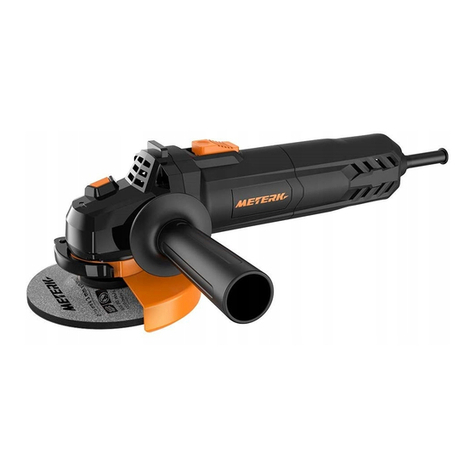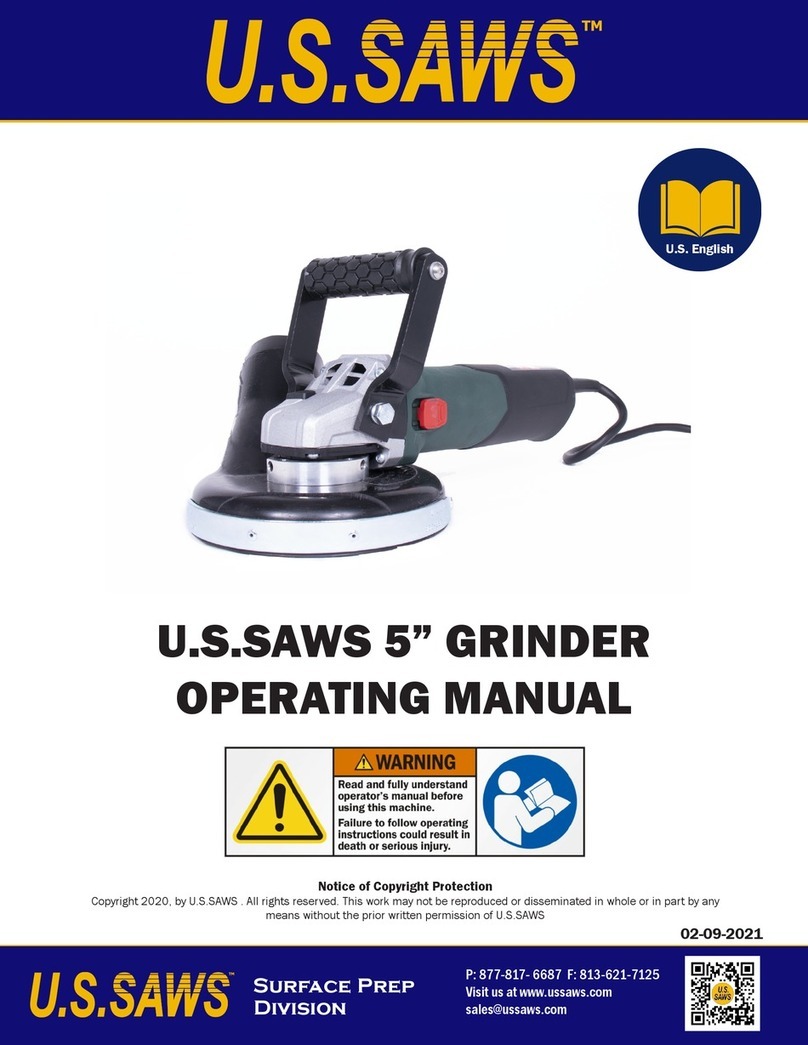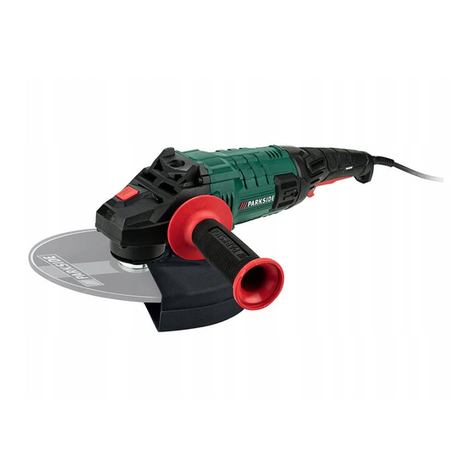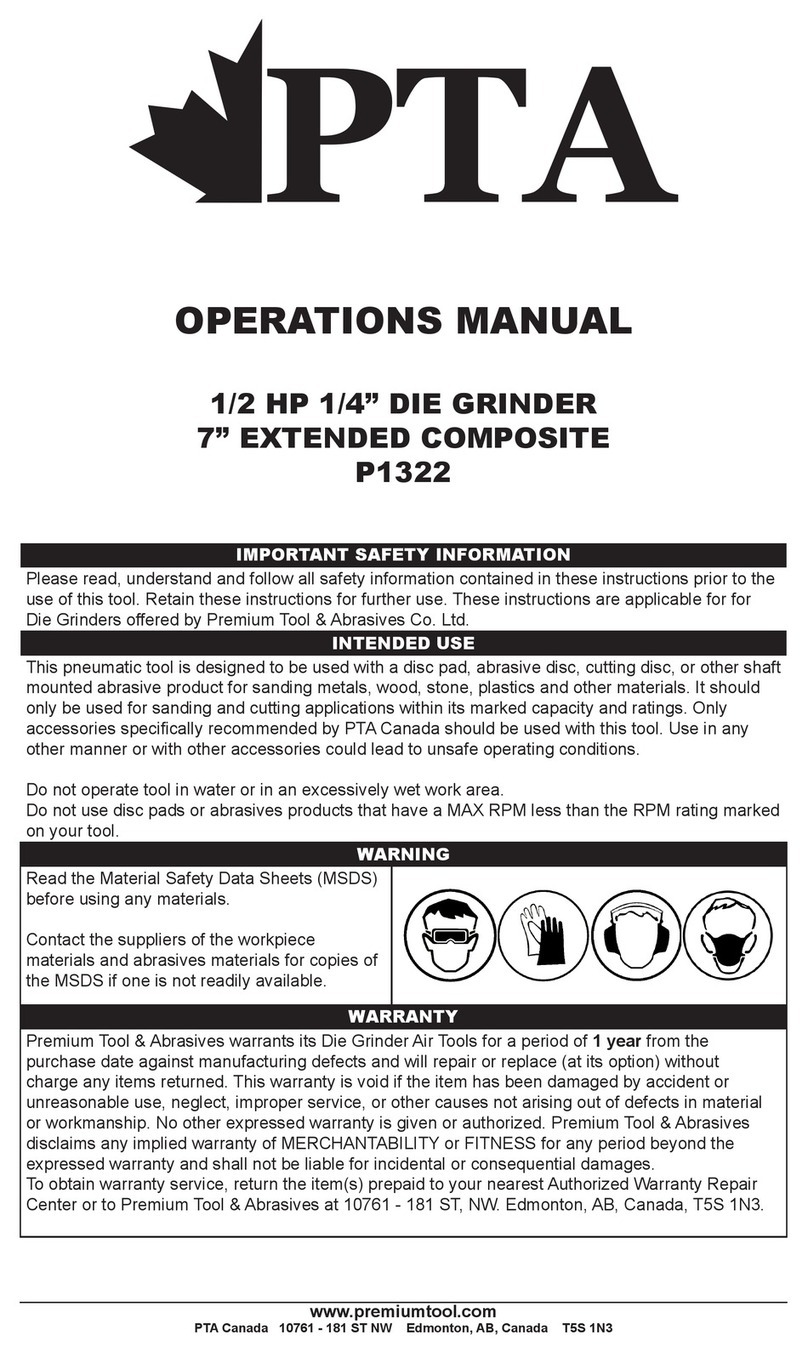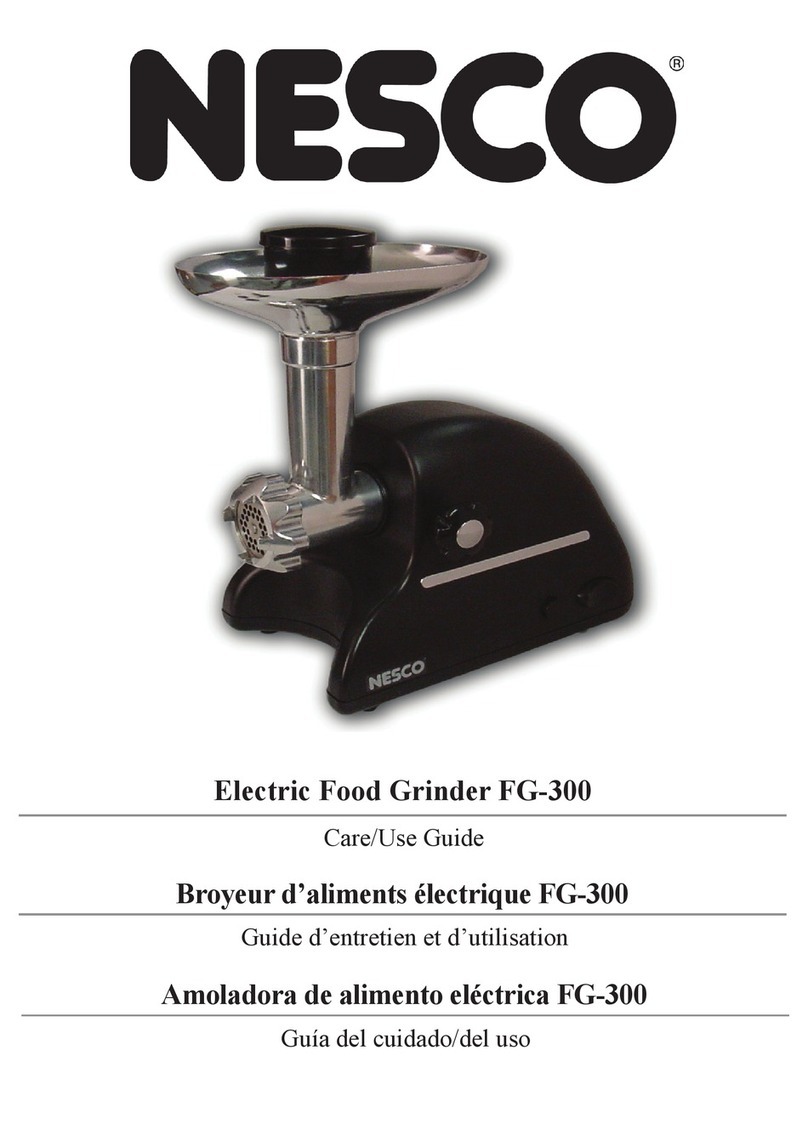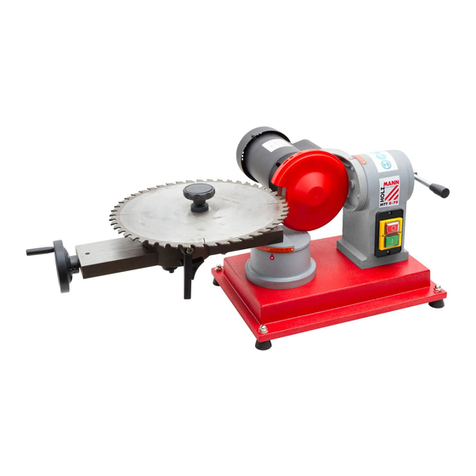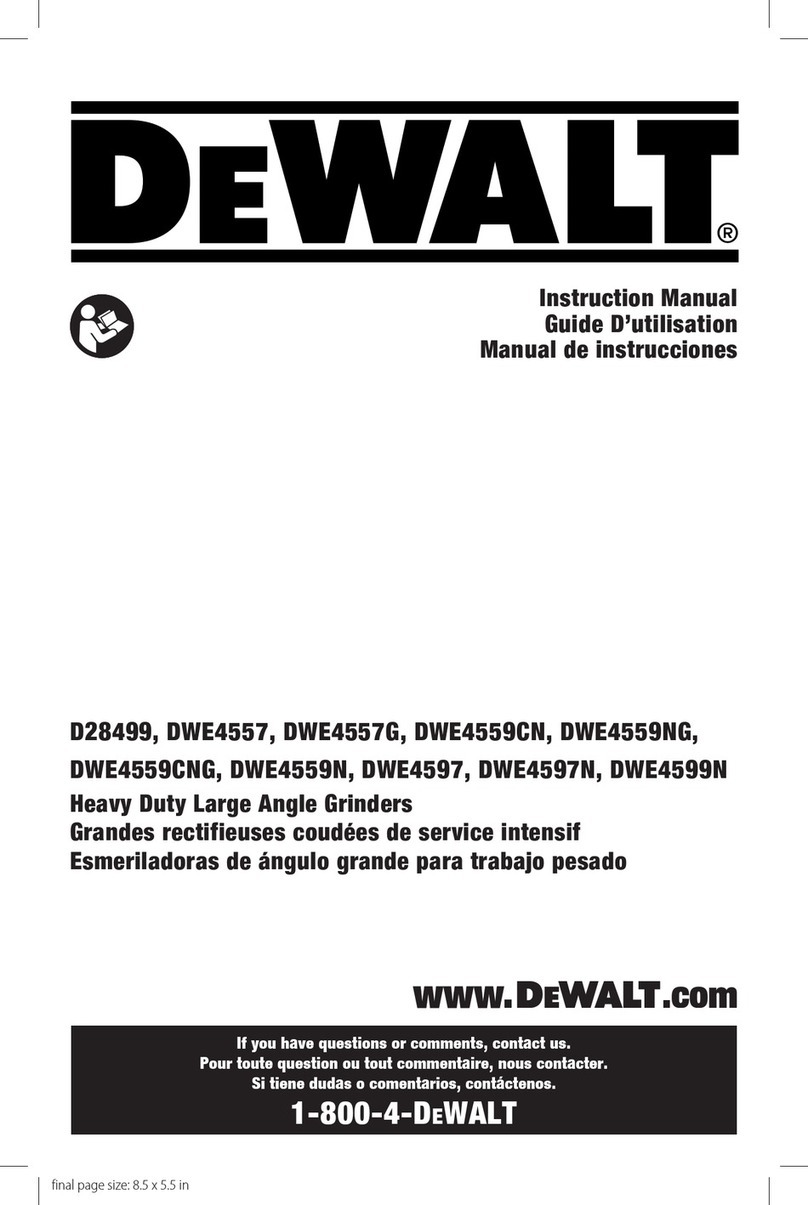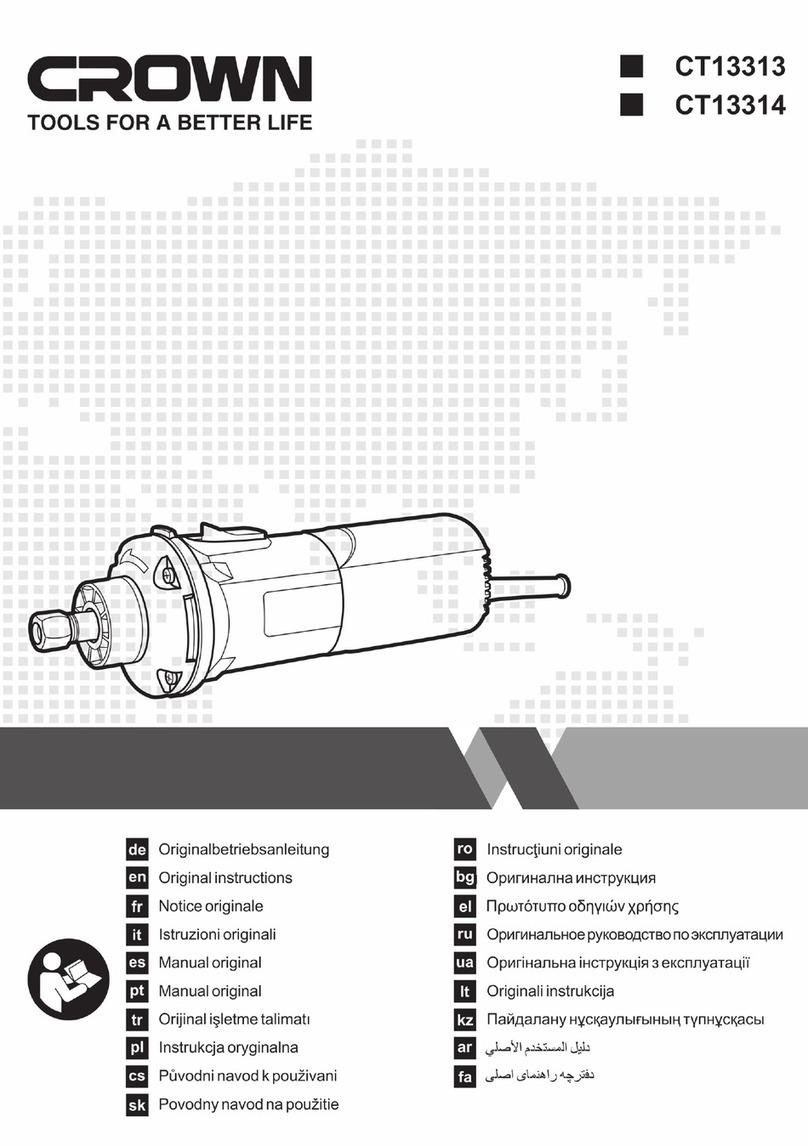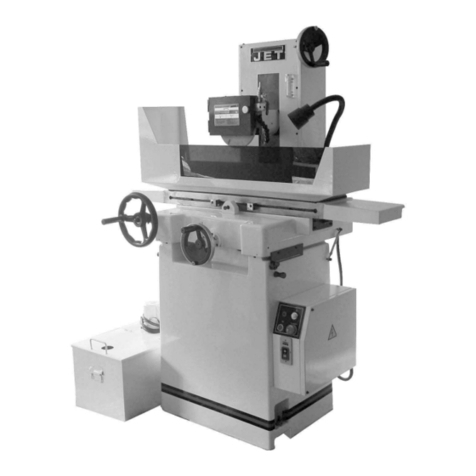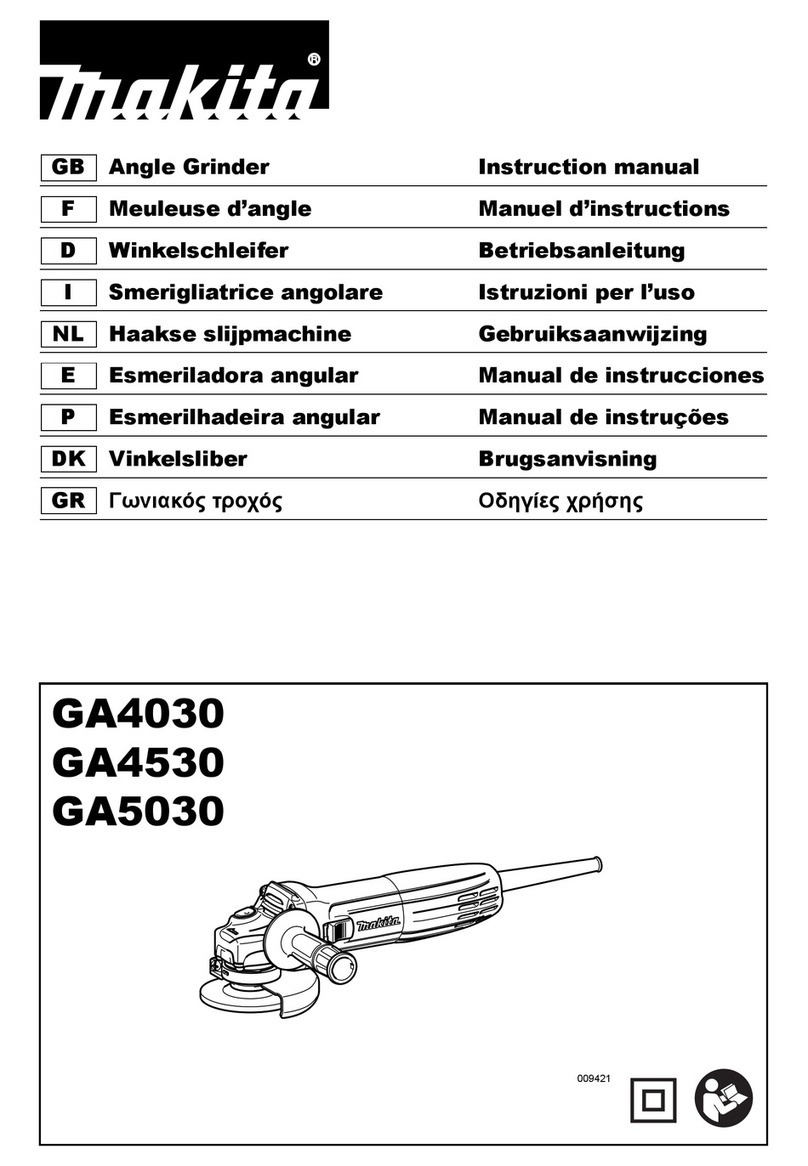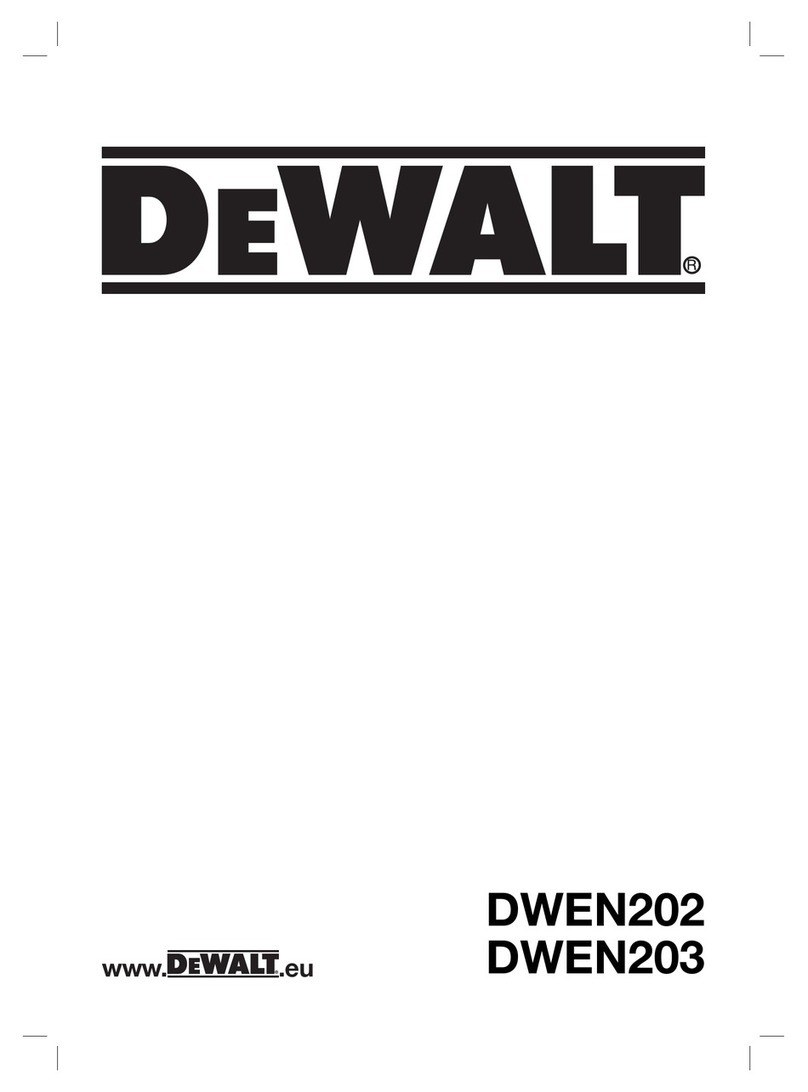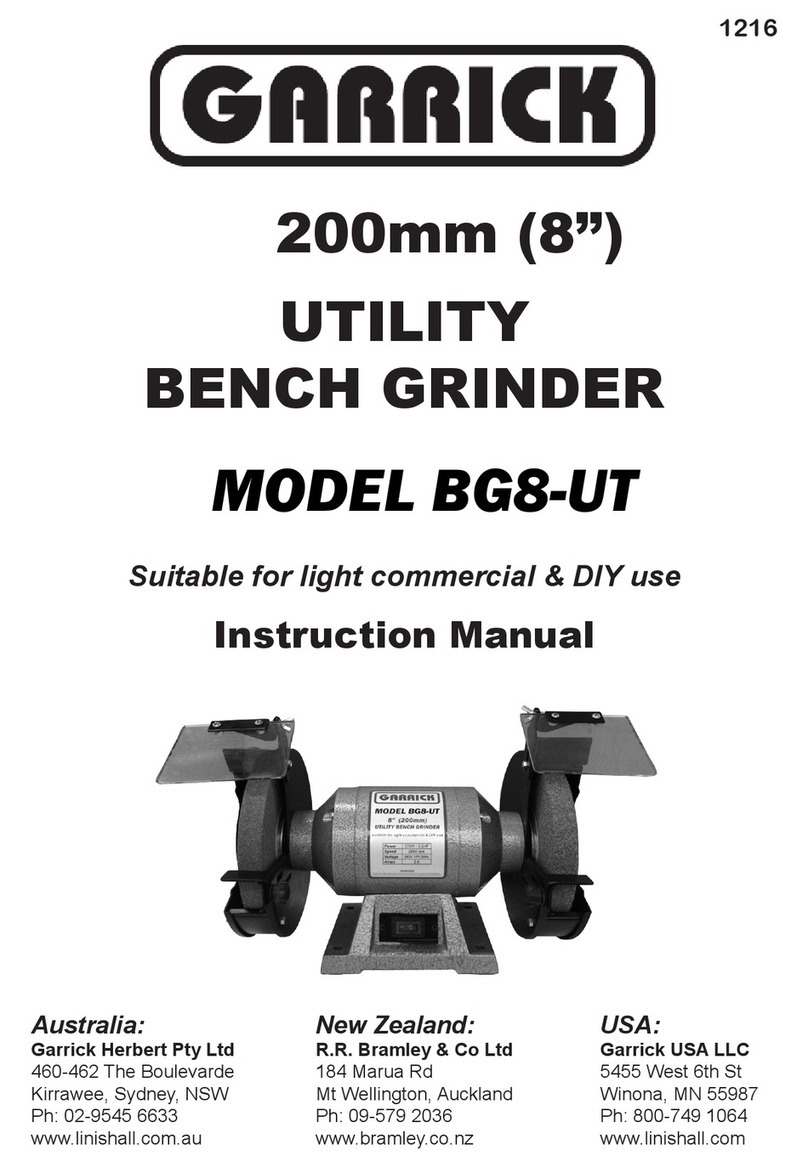
WARNING: This power tool is intended
to function as a grinder or cut-off tool. Read
all safety warnings, instructions, illustrations
and specifications provided with this power
tool. Failure to follow all instructions listed below
may result in electric shock, fire and/or serious
injury.
WARNING: Operations such as sanding,
wire brushing or polishing are not
recommended to be performed with this
power tool. Operations for which the power tool
was not designed may create a hazard and
cause personal injury.
Do not use accessories which are not
specifically designed and recommended by
the tool manufacturer. Just because the
accessory can be attached to your power tool, it
does not assure safe operation.
The rated speed of the accessory must be at
least equal to the maximum speed
marked on the power tool. Accessories
running faster than their RATED SPEED can
break and fly apart.
The outside diameter and the thickness of
your accessory must be within the capacity
rating of your power tool. Incorrectly sized
accessories cannot be adequately guarded or
controlled.
The arbor size of wheels, flanges, backing
pads or any other accessory must properly
fit the spindle of the power tool. Accessories
with arbor holes that do not match the mounting
hardware of the power tool will run out of
balance, vibrate excessively and may cause
loss of control.
Do not use a damaged accessory. Before
each use inspect the accessory such as
abrasive wheels for chips and cracks,
backing pad for cracks, tear or excess wear,
wire brush for loose or cracked wires. If
power tool or accessory is dropped, inspect
for damage or install an undamaged
accessory.
After inspecting and installing an accessory,
position yourself and bystanders away from
the plane of the rotating accessory and run
the power tool at maximum no-load speed
for one minute. Damaged accessories will
normally break apart during this test time.
Wear personal protective equipment.
Depending on application, use face shield,
safety goggles or safety glasses. As
appropriate, wear dust mask, hearing
protectors, gloves and workshop apron
capable of stopping small abrasive or
workpiece fragments.
The eye protection must be capable of stopping
flying debris generated by various operations.
The eye protection must be capable of stopping
flying debris generated by various operations.
The dust mask or respirator must be capable of
filtrating particles generated by your
operation. Prolonged exposure to high intensity
noise may cause hearing loss.
Keep bystanders a safe distance away from
work area. Anyone entering the work area
must wear personal protective equipment.
Fragments of workpiece or of a broken
accessory may fly away and cause injury
beyond immediate area of operation.
Hold power tool by insulated gripping
surfaces only, when performing an operation
where the cutting accessory may contact
hidden wiring or its own cord. Cutting
accessory contacting a "live" wire may make
exposed metal parts of the power tool "live" and
shock the operator.
Position the cord clear of the spinning
accessory. If you lose control, the cord may be
cut or snagged and your hand or arm may be
pulled into the spinning accessory.
Never lay the power tool down until the
accessory has come to a complete stop. The
spinning accessory may grab the surface and
pull the power tool out of your control.
SAVE THESE INSTRUCTIONS FOR REFERENCE
